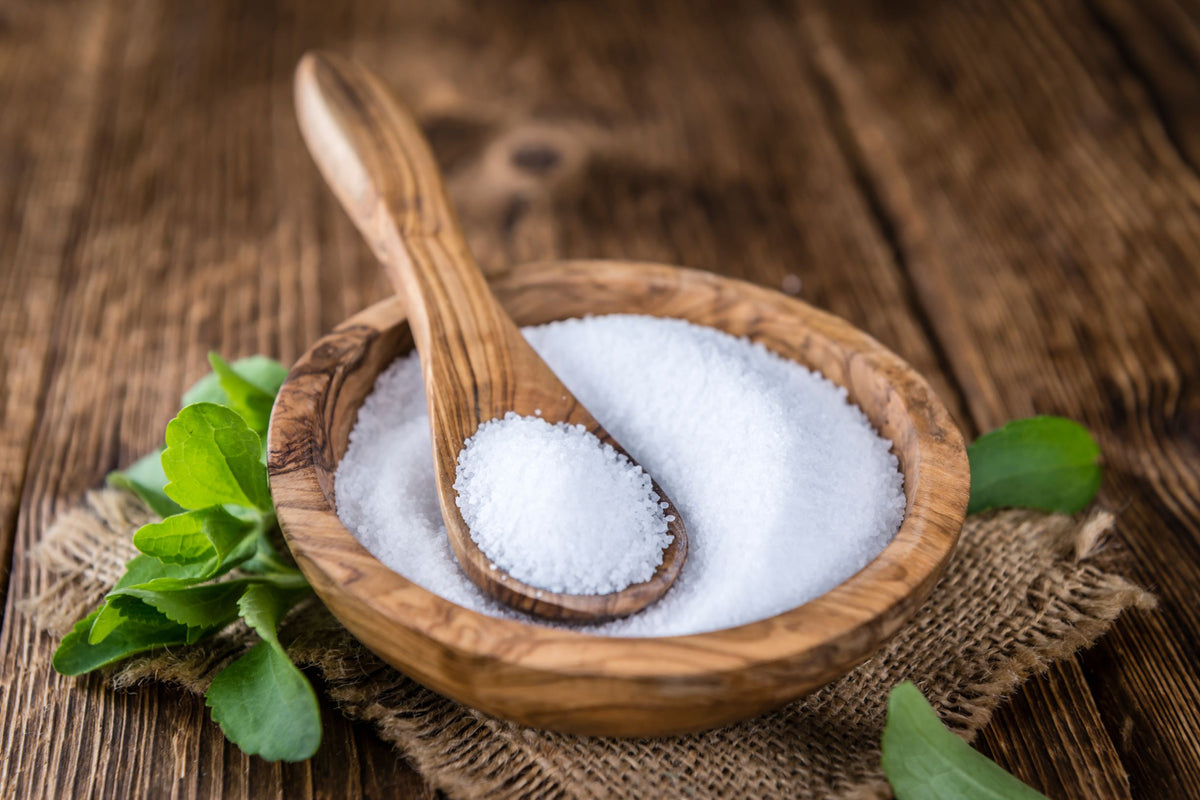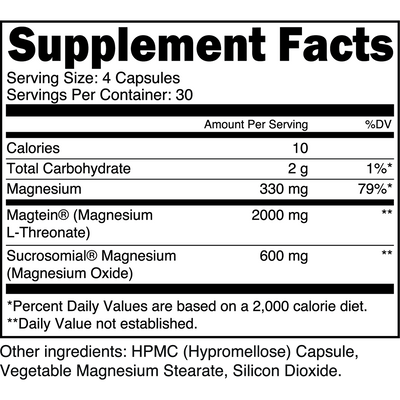Is Stevia Bad for You? An Inside Look at this Natural Zero-Calorie Sweetener

Is Stevia Bad for You?
The leaves of the stevia plant (Stevia rebaudiana) contain two of Mother Nature's sweetest naturally occurring calorie-free sugar substitutes, stevioside and rebaudioside A. These compounds belong to a class of secondary plant metabolites known as steviol glycosides.
Unlike many non-nutritive sweeteners, such as sucralose, aspartame, acesulfame-K, and various sugar alcohols, stevia leaf extract is not synthetically produced. As such, stevia has set itself apart from artificial sweeteners and gained considerable fanfare among advocates of low-carb diets.
However, consumers wonder if stevia leaf extract is safe given its intense sweetness. It almost seems too good to be true — how can something that's 300 times sweeter than table sugar be zero-calorie and have virtually no negative impact on blood sugar? Is stevia bad for you, or is it actually beneficial for your health and wellness?
Read on as we dissect what research has to say about stevia's use as an alternative to other zero-calorie sweeteners.
What is Stevia?
Stevia rebaudiana, also known as sweet leaf, is a small, green flowering plant native to Paraguay. Leaves of the stevia plant have been used for centuries in South America for sweetening coffee, tea, and other beverages.
Nowadays, stevia sweeteners from made whole-leaf crude stevia extract are a common natural sugar substitute found in many "lite" and low-carb food products. Crude stevia extracts are highly concentrated with exceptionally sweet compounds called steviol glycosides, notably stevioside, pictured below, and rebaudioside A (reb-A). These compounds are estimated to be 300 times sweeter than table sugar (sucrose) [1].

In contrast to table sugar and other simple sugars, the steviol glycosides found in stevia leaves are non-nutritive, meaning they contain no calories and have a negligible impact on blood sugar. After ingestion, steviol glycosides are metabolized to steviol and leave the body [2]. Since there is no accumulation of steviol glycosides or their metabolites in human tissue, stevia extract is a very safe substitute for sugar and other nonnutritive sweeteners.
Is Stevia Safe?
Whole-leaf stevia extract is generally recognized as safe (GRAS) by the United States Food and Drug Administration (FDA). Zero-calorie sweeteners are considered food additives, so GRAS status is a reassuring way of determining the safety of these ingredients.
The FDA is very stringent about chemicals that are deliberately added to food products. If there isn't compelling research to deem a food additive safe, it won't be on the GRAS list. The good news for stevia lovers is that there is a growing body of scientific research on stevia and its health effects.
While any chemical or substance can cause untoward effects, stevia is evidently very safe. A recent review of toxicological studies found that steviol glycosides have no teratogenic, mutagenic, or carcinogenic activity, and there is no evidence of lethal toxicity [3]. It's quite rare for any chemical to meet those same criteria.
Of course, that's not to say that people should go out of their way to consume stevia in excess. Like any sweetener, stevia may cause undesirable "side effects" (using that term loosely). Still, you should be wary of anyone that sweepingly claims stevia is bad for you. There is simply no convincing evidence to substantiate that notion.
Stevia side effects

In terms of health side effects, there are ostensibly no long-term adverse outcomes in people who use stevia as a sweetener [4]. If anything, stevia could be medicinal in specific subpopulations, particularly those looking to lower blood sugar and lose weight [5].
Stevia is truly in a league of its own, especially considering the equivocality of health effects from artificial sweeteners commonly used in food products.
The catch is that many people may find the bitter aftertaste of stevia extracts to be a dealbreaker. If bitter taste classifies as a "side effect," that's about the only mark against stevia.
On the plus side, highly concentrated stevia extracts are 300 times sweeter than table sugar. Hence, you only need a fraction of a teaspoon to sweeten tea and coffee. Stevia extract is so sweet that it's often mixed with sugar alcohol for use in food recipes.
Health Benefits of Stevia
Like countless other plant extracts, stevia may confer a range of health benefits when used as a sweetener in place of sugar. For starters, the nonnutritive nature of stevia may be beneficial for weight management/weight loss and controlling blood sugar swings [6]. Steviol glycosides do not increase blood sugar; therefore, they also don't elicit an insulin response [7]. Thus, stevia extract is a prudent zero-calorie sweetener for managing diabetes.
Research has also demonstrated a beneficial effect of stevia on blood pressure and blood lipid readings, thereby reducing the long-term risk of hypertension, atherosclerosis, and metabolic syndrome [8]. Stevioside and rebaudioside A even have modest antioxidant capacity [9].
Interestingly, stevia remains the least-studied nonnutritive sweetener [10]. Though, that's likely to change in the not-too-distant future as public interest in health continues to increase. Many people are looking for alternatives to sugar and artificial sweeteners currently used in food products.
Using Stevia as a Natural Sugar Substitute
Is stevia bad for you? In a word: No. The more pertinent question for people to ask is if stevia is beneficial. Stevia has GRAS approval from the FDA and is very safe based on extant literature.
So, stevia may be just the zero-calorie sweetener for you if weight loss and managing blood sugar are your primary concerns. Research should continue to uncover other potential therapeutic applications of stevia as a food additive.

Transparent Labs is proud to use stevia extract as the go-to sweetener for powdered formulas. You won't find any artificial sweeteners in our best-selling pre-workouts, protein powders, or amino acid supplements. We also don't use any artificial food coloring, flavoring, or additives. Our mission is to provide clean, fully-transparent products that people can count on for quality and efficacy.









